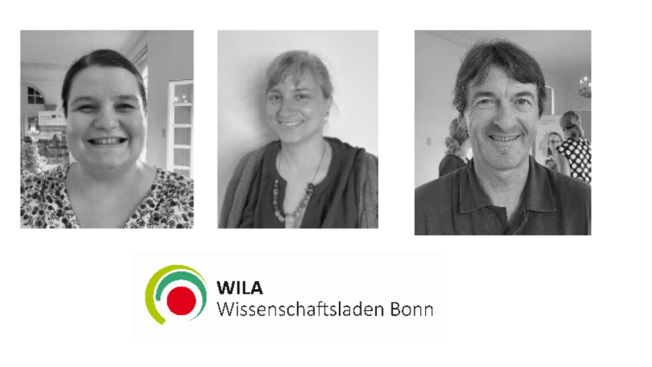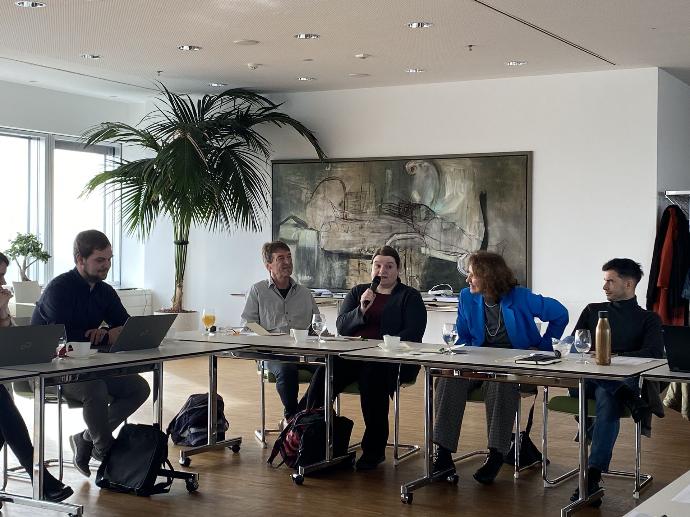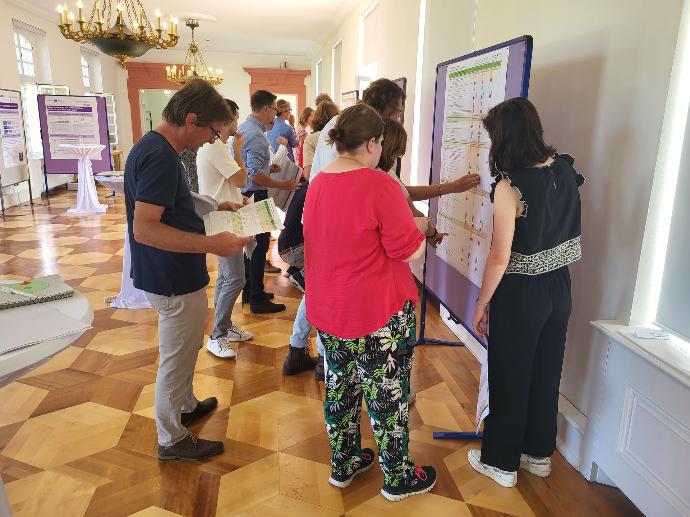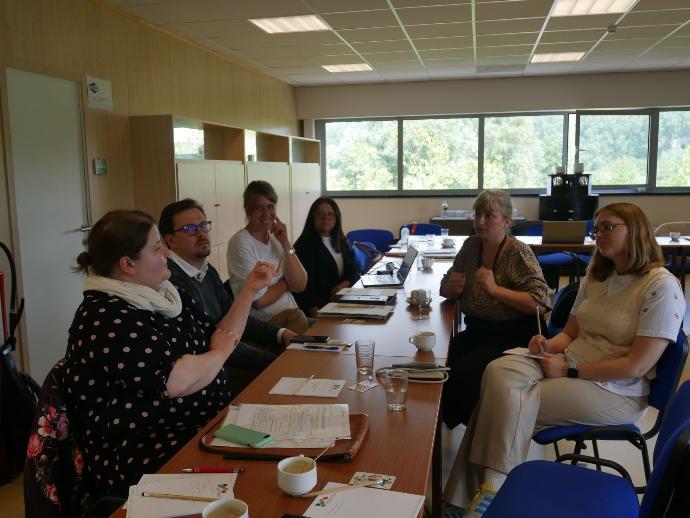Bonn Science Shop is active in different roles in IB-Green: For example as organiser of the IB-Green Award for companies that are role models for others in implementing green-blue infrastructure. Together with her colleagues Bernd Assenmacher and Meike Rohkemper Franziska Boehm from Bonn Science Shop are responsible for IB-Green. Franziska took the time to answer some questions for us.

© Photos INFRASTRUKTUR & UMWELT, l.t.r: Franziska Böhm, Meike Rohkemper, Bernd Assenmacher
What previous activities have you implemented (or which projects have you been involved with) concerning blue and green infrastructure in industrial and business parks?
Bonn Science Shop (WILA) has been involved in several projects that create GBI in Germany, e.g.: Grün statt Grau – Gewerbegebiete im Wandel; Natur Urban – Gewerbegebiete im Klimawandel; Natur in graue Zonen. In all these projects, we were looking to simultaneously promote biodiversity, improve climate change adaption and improve the overall working environment in an integrated manner.
Which activities/pilot action of another IB-Green project partner do you find interesting or do you think you can learn from the most?
The many ways the project regions have set up the management of their IBPs! For example, in Sandyford Business District, they have set up a company that is responsible for the IBP development and the companies choose the CEO. That is almost unheard of in Germany.
Which of your own project activities are you most looking forward to, and why?
Personally, I love simulation workshops. They are a great way to familiarize people with different perspectives on a topic, practice conflict resolution skills and the participants usually have lots of fun!
What previous activities have you implemented (or which projects have you been involved with) concerning blue and green infrastructure in industrial and business parks?
Describe your organisation in three words.
Educate – know – act
What other EU-/INTERREG-financed project are you working on?
For example, Bonn Science Shop currently coordinates the Horizon Europe financed project “LOESS” (Literacy boost through an Operational Educational Ecosystem of Societal actors on Soil health). This project focuses on increasing soil literacy across Europe and carries out activities in 15 countries.
Other EU projects e.g. focused on investigating what approaches to climate adaptation already exist in European regions and developing solutions (TeRRIFICA), promoting Responsible Research and Innovation (Sparks) or bringing bioeconomy into society (BLOOM).
What do you think is most important when convincing people to become active for climate adaptation?
People don’t just get involved because they know more about a topic – and that is also true for climate change adaptation! They need their own emotional access point; they need to try things out and experience themselves as competent. Therefore, it is important to talk to people and discuss what drives them, how they want to live, what they want to learn in order to achieve that and so on. This is a crucial part of the activities WILA carries out.


